Here’s the final commentary in a series on predictions that 2030 will be the watershed year to watch for when vehicles, transportation, and the entire auto industry itself will look quite different than it does today.
This topic has been further explored in a Green Auto Market analytical report. Click here to see the market report available for purchase and download.
And in other news……..
Uber and other mobile apps fighting California’s new labor law: California’s leading mobile app companies — Uber, Lyft, DoorDash, Postmates, and Instacart — will be fighting the state’s new law, AB 5, that was approved and signed by the governor in September. AB 5 will essentially be making drivers employees after it becomes enacted on January 1. The Silicon Valley mobility companies are backing what’s called the Protect App-Based Drivers & Services Act, which will become a ballot initiative for the November 2020 election once enough Californians sign a request to have it placed on that ballot. Uber, Lyft, and DoorDash have each contributed $30 million to get the initiative approved by voters; Postmates and Instacart are each contributing $10 million. If enacted, their law would cancel AB 5; it’s being written to ensure drivers and couriers can continue to be independent contractors with flexible work hours. Drivers have been marching in support of the new initiative, which will have incentives built in such as guaranteeing they receive at least 120 percent of minimum wage while on the job. It would reverse the new rules that AB 5 has created for the state. Legal battles are likely to take place in the state’s courts, with class-action lawsuits for workers and suits filed by the mobile app companies attempting to thwart AB 5. For now, Uber and the other Silicon Valley startups are being quiet about how their drivers will be treated after January 1 — if the companies will follow AB 5, or if it will be ignored as they scramble to organize their lobbying and legal battles.
Ford v Ferrari: For car buffs and racing fans, “Ford v Ferrari” will be a real treat. Released in theaters this coming Friday, the movie dramatizes the 1966 Le Mans 24-hour endurance race, where legendary designer Carroll Shelby’s Ford GT40 was able to knock out reigning champion Ferrari. Mat Damon plays Shelby and Christian Bale plays maverick driver Ken Miles. The filmmakers borrowed cars shown in the film from California-based Shelby Legendary Cars and its parent company, Superformance.
Uber and Lyft riders not happy with LAX: Airline passengers coming in to Los Angeles International Airport (LAX) have to wait longer now to get into their Uber and Lyft rides. Uber and Lyft passengers can no longer wait for the car to arrive curbside at terminals; they have to get on what’s called the LAX-it shuttle and be taken to an offsite station to meet their drivers. The airport continues constructing a major changeover, with a new people mover being set up to carry passengers across the expanding terminals. LAX ground transportation guidelines have been changing for a few years now, and passengers have become more agitated with the wait time and gridlock at the airport with continued construction and roadblocks. Airport administrators hope that setting up the new ride-hailing station will reduce traffic overall for drivers dropping off, and picking up, family and friends on the LAX terminal loop. Getting a ride from Uber and Lyft had been a convenient, cost effective transportation option in the past few years. That’s all changing now, with much of that efficiency being taken away. Air travelers and those driving them have been avoiding LAX whenever possible as traffic has gotten worse. Solutions for travelers include going to another nearby airport whenever possible. However, many cross country and international flights have to go in and out of LAX — and not the Orange County, Long Beach, or Ontario Airports. So changes at LAX greatly affect regular travels living and working in the LA and OC area. For taxi, chauffeured transportation, and shuttle operators, LAX’s changes affecting Uber and Lyft are just deserts for stringent and costly regulations imposed on them for several decades by airports and cities. Uber and Lyft are facing more regulations and fees in London, and the companies can expect government entities around the world to extend more of their own rules and fees as ride hailing continues expanding rapidly in these markets.
BYD Co. and Toyota Motor Corp. announced last week that they have signed an agreement to establish a joint company to research and develop battery electric vehicles (BEVs). The new R&D company, which will work on designing and developing BEVs (including platforms) and related parts, is anticipated to be established in China in 2020, with BYD and Toyota to evenly share 50 percent of the total capital needed. Additionally, BYD and Toyota plan to staff the new company by transferring engineers and the jobs currently involved in related R&D from their respective companies.

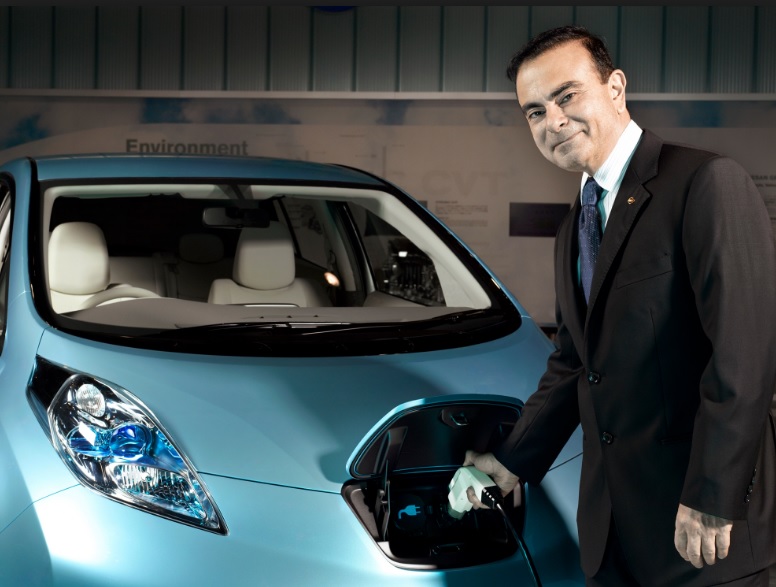 during 2017. That was made up of 10.61 million new vehicles sold last year with Nissan bringing in 5.82 million, Renault 3.76 million, and its Mitsubishi subsidiary (acquired in 2016) selling 1.03 million. VW came in at 10.53 million and longtime winner Toyota Motor sold 10.2 million. CEO Carlos Ghosn has pledged to tap into economies of scale and double savings by 10 billion euros ($12 billion) by 2022. That assumes annual sales will rise to 14 million vehicles. Sharing parts and consolidating platforms is the foundation it’s being built on, as it usually cuts r&d and manufacturing costs. The Alliance will be rolling out 12 new all-electric models using common platforms by 2022, Ghosn said late last year. Plug-in hybrid models will also be utilized, coming from Mitsubishi’s experience with the Outlander PHEV. Two other utility plug-in hybrids will be coming to market over the next two years. The alliance companies have collectively already sold more than a half million plug-in electrified vehicles.
during 2017. That was made up of 10.61 million new vehicles sold last year with Nissan bringing in 5.82 million, Renault 3.76 million, and its Mitsubishi subsidiary (acquired in 2016) selling 1.03 million. VW came in at 10.53 million and longtime winner Toyota Motor sold 10.2 million. CEO Carlos Ghosn has pledged to tap into economies of scale and double savings by 10 billion euros ($12 billion) by 2022. That assumes annual sales will rise to 14 million vehicles. Sharing parts and consolidating platforms is the foundation it’s being built on, as it usually cuts r&d and manufacturing costs. The Alliance will be rolling out 12 new all-electric models using common platforms by 2022, Ghosn said late last year. Plug-in hybrid models will also be utilized, coming from Mitsubishi’s experience with the Outlander PHEV. Two other utility plug-in hybrids will be coming to market over the next two years. The alliance companies have collectively already sold more than a half million plug-in electrified vehicles.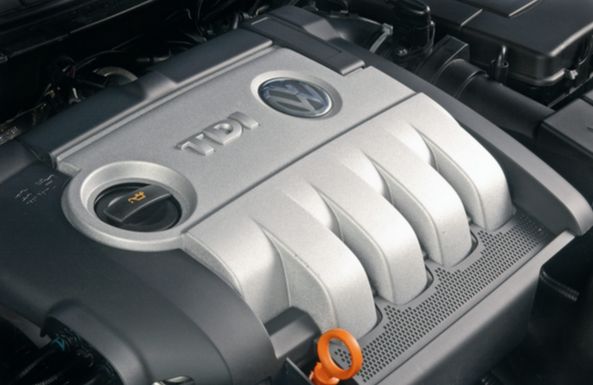 Thomas Steg, today in response to reports that the company and two competitors had sponsored tests that exposed monkeys and humans to toxic diesel fumes. The company had come under scrutiny again last week after The New York Times reported that VW, BMW, and Daimler had funded an organization called European Research Group on Environment and Health in the Transport Sector (EUGT) to carry out the tests. These methods used in the U.S. were wrong, unethical, and repulsive, VW CEO Matthias Mueller said Monday. The study had been conducted in 2014 to defend diesel following reports that diesel car fumes were carcinogenic. The EUGT study had been dissolved last year. This news was revealed right after Germany’s KBA automotive watchdog has detected illicit emission-control software in Audi’s latest Euro-6 diesel models. KBA has ordered a recall of these 127,000 vehicles, putting more pressure on parent company VW to comply with government mandates in the U.S. and Europe.
Thomas Steg, today in response to reports that the company and two competitors had sponsored tests that exposed monkeys and humans to toxic diesel fumes. The company had come under scrutiny again last week after The New York Times reported that VW, BMW, and Daimler had funded an organization called European Research Group on Environment and Health in the Transport Sector (EUGT) to carry out the tests. These methods used in the U.S. were wrong, unethical, and repulsive, VW CEO Matthias Mueller said Monday. The study had been conducted in 2014 to defend diesel following reports that diesel car fumes were carcinogenic. The EUGT study had been dissolved last year. This news was revealed right after Germany’s KBA automotive watchdog has detected illicit emission-control software in Audi’s latest Euro-6 diesel models. KBA has ordered a recall of these 127,000 vehicles, putting more pressure on parent company VW to comply with government mandates in the U.S. and Europe.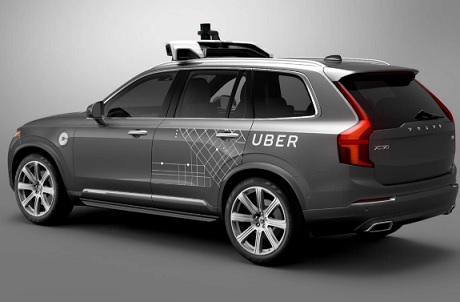 familiar with the matter told Reuters that BMW has bought out its partner, German car rental company Sixt, from its joint venture that had backed the DriveNow car-sharing unit. The two automakers are talking about a new JV that would offer car sharing, ride-hailing, electric vehicle charging, and digital parking services. Daimler’s Car2Go has had a strong presence in Europe and the U.S., and DriveNow has been growing in these regions. Ride-hailing itself is expected to be a $285 billion segment by 2030 once self-driving ride-hailing services are in place, according to Goldman Sachs. A senior executive at one of the two German carmakers who declined to be named said the new JV “will create an ecosystem which can also be used for managing robotaxi fleets.”
familiar with the matter told Reuters that BMW has bought out its partner, German car rental company Sixt, from its joint venture that had backed the DriveNow car-sharing unit. The two automakers are talking about a new JV that would offer car sharing, ride-hailing, electric vehicle charging, and digital parking services. Daimler’s Car2Go has had a strong presence in Europe and the U.S., and DriveNow has been growing in these regions. Ride-hailing itself is expected to be a $285 billion segment by 2030 once self-driving ride-hailing services are in place, according to Goldman Sachs. A senior executive at one of the two German carmakers who declined to be named said the new JV “will create an ecosystem which can also be used for managing robotaxi fleets.”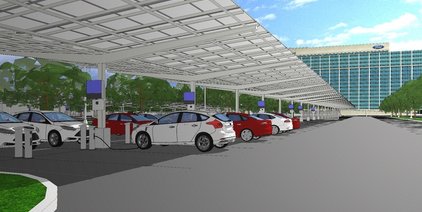 the prestigious
the prestigious  standards between its departments and with the state of California will be clarified in weeks ahead. National Highway Traffic Safety Administration
standards between its departments and with the state of California will be clarified in weeks ahead. National Highway Traffic Safety Administration  hailing app for women riders transported by women drivers, closed its shutters on Tuesday, January 9.
hailing app for women riders transported by women drivers, closed its shutters on Tuesday, January 9.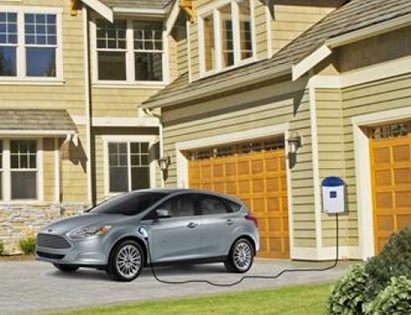 will still be able to claim a tax credit up to $7,500 on the purchase. The 200,000 unit cap will still be in place with Tesla, General Motors, and Nissan expected to hit that ceiling sometime next year. Automakers and organizations such as CALSTART and Plug In America had been lobbying for inclusion of the tax credit, which had been initially cut from a House tax bill.
will still be able to claim a tax credit up to $7,500 on the purchase. The 200,000 unit cap will still be in place with Tesla, General Motors, and Nissan expected to hit that ceiling sometime next year. Automakers and organizations such as CALSTART and Plug In America had been lobbying for inclusion of the tax credit, which had been initially cut from a House tax bill.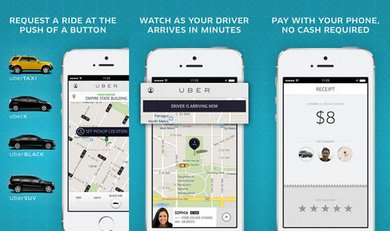 had argued that it merely provides a mobile app linking riders to car owners, and not a taxi or livery company. The case had come out after Barcelona ruled that Uber was to obey local taxi rules in that city. Uber downplayed the court ruling, saying that the company already operates under transportation laws in most European Union countries. Analysts say the ruling will have serious implications for Uber and other similar companies operating in the new gig economy. Uber and its new management team have a set of challenges to face after going through a difficult year.
had argued that it merely provides a mobile app linking riders to car owners, and not a taxi or livery company. The case had come out after Barcelona ruled that Uber was to obey local taxi rules in that city. Uber downplayed the court ruling, saying that the company already operates under transportation laws in most European Union countries. Analysts say the ruling will have serious implications for Uber and other similar companies operating in the new gig economy. Uber and its new management team have a set of challenges to face after going through a difficult year.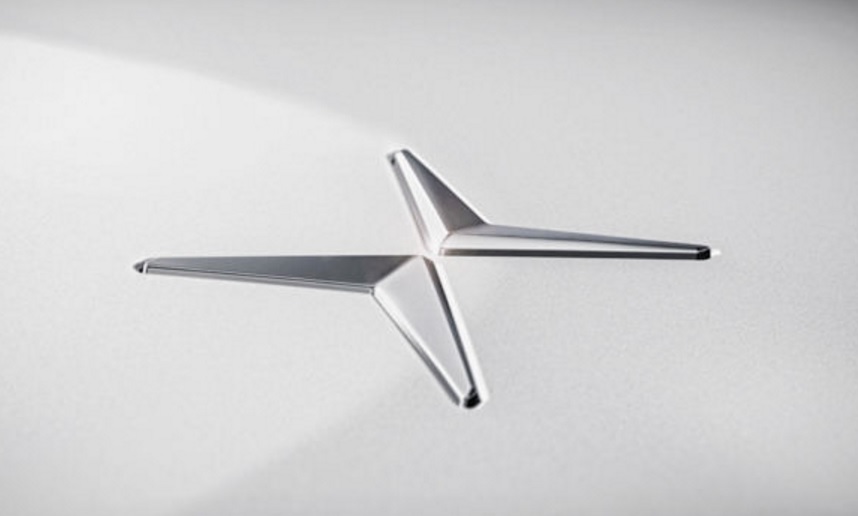 subscription service. The company said that since the launch in October, enthusiasm has been high enough to sell off the early production volume. The first model, the Polestar 1, will be start production in mid-2019 at a new factory in Chengdu, China. The monthly subscription cost will be $2,000 for the entry-level Launch package that covers registration, insurance, and maintenance, with no deposit required. The Polestar 1 has a 600 horsepower electric performance hybrid powertrain. It will be the longest running battery-only plug-in hybrid out there with the ability to go 150 kilometers (93.2 miles) on battery power.
subscription service. The company said that since the launch in October, enthusiasm has been high enough to sell off the early production volume. The first model, the Polestar 1, will be start production in mid-2019 at a new factory in Chengdu, China. The monthly subscription cost will be $2,000 for the entry-level Launch package that covers registration, insurance, and maintenance, with no deposit required. The Polestar 1 has a 600 horsepower electric performance hybrid powertrain. It will be the longest running battery-only plug-in hybrid out there with the ability to go 150 kilometers (93.2 miles) on battery power.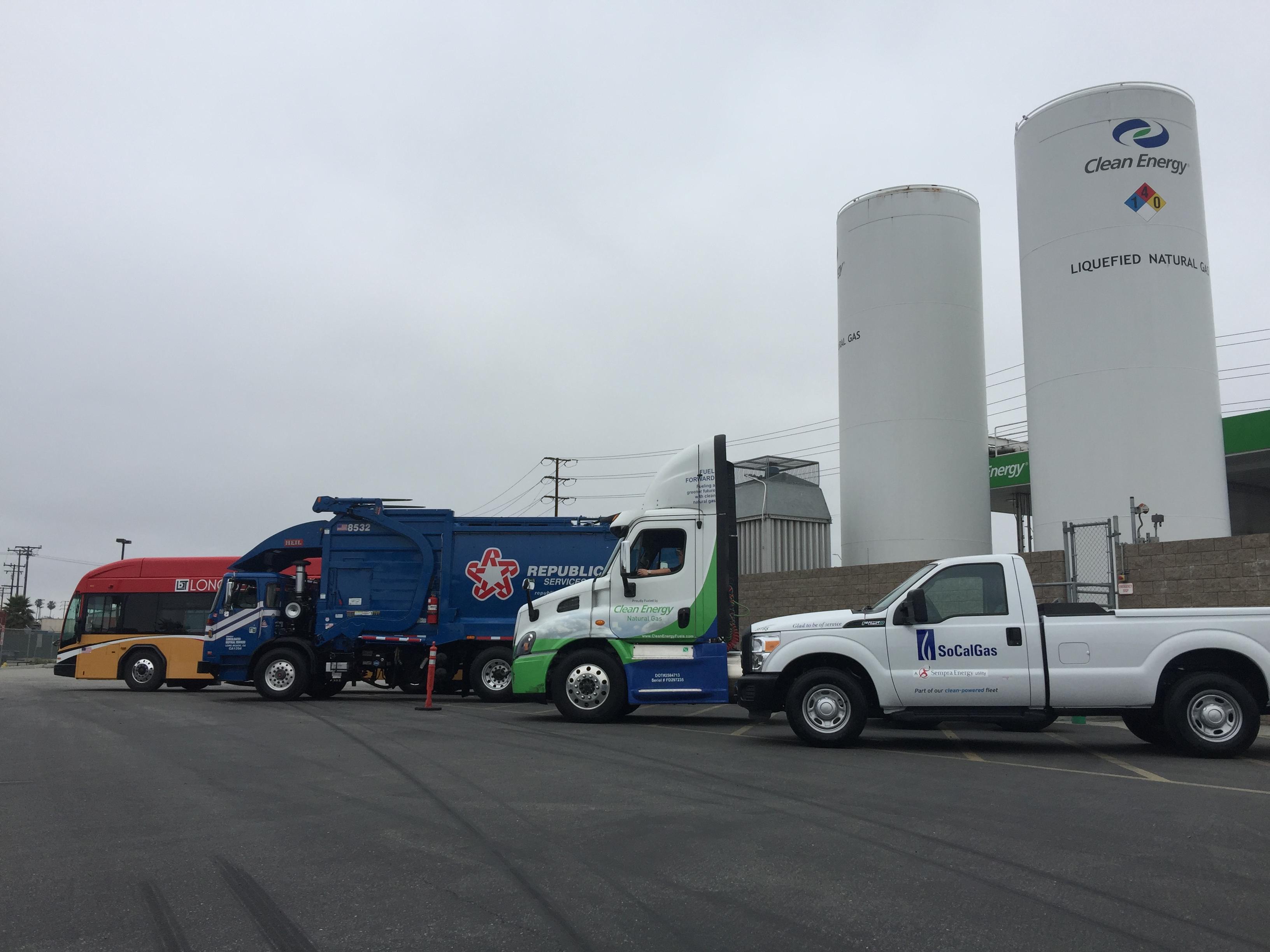 California Air Resources Board for its 2018 L9N and B6.7N natural gas engines. Both engines meet CARB optional Low NOx standards, as well as 2017 EPA greenhouse gas emission requirements. That makes them some of the cleanest engines available today for truck and bus customers, according to the company. It will be of interest to truck and bus fleets investing in powertrains for future vehicles tapping into the full emission-reduction benefits of renewable natural gas. The L9N is certified to the CARB optional Low NOx standard of 0.02 g/bhp-hr ‒ a 90% reduction from engines operating at the current EPA NOx limit of 0.2 g/bhp-hr, and is available with ratings from 250 to 320 horsepower and 1,000 lb.-ft. peak torque. The B6.7N is certified to the CARB optional Low NOx standard of 0.1 g/bhp-hr – a 50% reduction from current EPA levels. It’s available with ratings from 200 – 240 hp and 560 lb.-ft. peak torque.
California Air Resources Board for its 2018 L9N and B6.7N natural gas engines. Both engines meet CARB optional Low NOx standards, as well as 2017 EPA greenhouse gas emission requirements. That makes them some of the cleanest engines available today for truck and bus customers, according to the company. It will be of interest to truck and bus fleets investing in powertrains for future vehicles tapping into the full emission-reduction benefits of renewable natural gas. The L9N is certified to the CARB optional Low NOx standard of 0.02 g/bhp-hr ‒ a 90% reduction from engines operating at the current EPA NOx limit of 0.2 g/bhp-hr, and is available with ratings from 250 to 320 horsepower and 1,000 lb.-ft. peak torque. The B6.7N is certified to the CARB optional Low NOx standard of 0.1 g/bhp-hr – a 50% reduction from current EPA levels. It’s available with ratings from 200 – 240 hp and 560 lb.-ft. peak torque.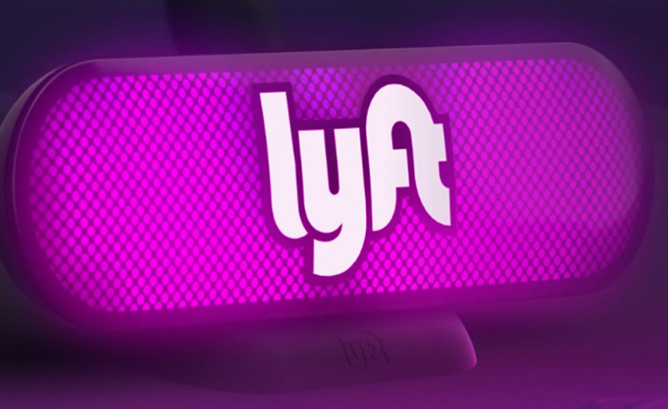 Fidelity Management & Research Company and Ontario Teachers’ Pension Plan. AllianceBernstein, Baillie Gifford, KKR, Janus Henderson Investors, and Rakuten. CapitalG led the billon-dollar round. The ride-hailing firm’s valuation is now at $11.5 billion. Alphabet, the Google parent company, played a key role in bringing in more investors for Lyft during October – after pulling away from financial support for arch-competitor Uber and filing its intellectual property theft lawsuit affecting its Waymo division……………..
Fidelity Management & Research Company and Ontario Teachers’ Pension Plan. AllianceBernstein, Baillie Gifford, KKR, Janus Henderson Investors, and Rakuten. CapitalG led the billon-dollar round. The ride-hailing firm’s valuation is now at $11.5 billion. Alphabet, the Google parent company, played a key role in bringing in more investors for Lyft during October – after pulling away from financial support for arch-competitor Uber and filing its intellectual property theft lawsuit affecting its Waymo division……………..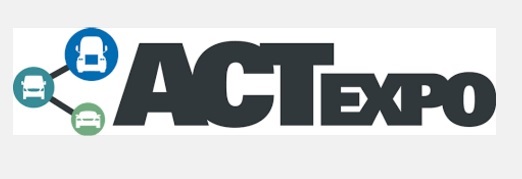 clean transportation events, GNA has played a key role in raising millions of dollars in grant funding for clients during its history. The consulting firm will celebrate its 25 year anniversary next year. The company has effectively supported the use of renewable fuels, and has provided research and analysis for all parts of the clean transportation industry. GNA also does emissions modeling, assists with technical fleet planning, monitors government affairs, and provide communications and media services to clients, CNGVC said.
clean transportation events, GNA has played a key role in raising millions of dollars in grant funding for clients during its history. The consulting firm will celebrate its 25 year anniversary next year. The company has effectively supported the use of renewable fuels, and has provided research and analysis for all parts of the clean transportation industry. GNA also does emissions modeling, assists with technical fleet planning, monitors government affairs, and provide communications and media services to clients, CNGVC said.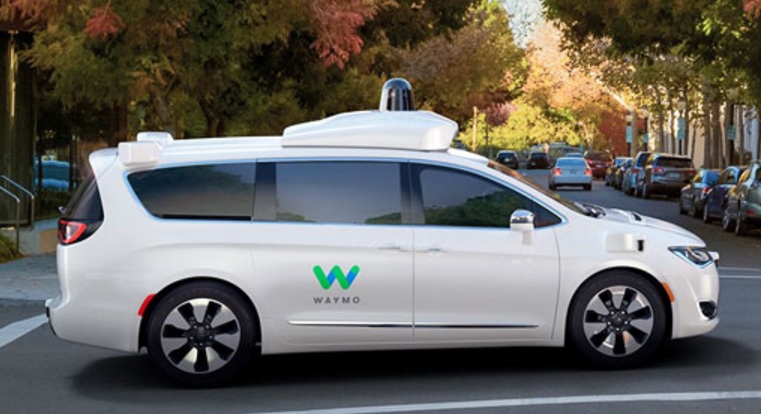 driving car technology. The federal judge in San Francisco hearing the trial has excluded Waymo’s damages expert, Michael Wagner, from the case; and has restricted use of financial evidence at the trial, according to a docket entry. Waymo claims that it has received damages worth about $1.9 billion in losses. Uber has denied using intellectual property that had allegedly been stolen by former Waymo engineer Anthony Levandowski. Waymo responded to the judge’s decision with a statement that it could still pursue full damages using “the same documents” relied upon by Wagner.
driving car technology. The federal judge in San Francisco hearing the trial has excluded Waymo’s damages expert, Michael Wagner, from the case; and has restricted use of financial evidence at the trial, according to a docket entry. Waymo claims that it has received damages worth about $1.9 billion in losses. Uber has denied using intellectual property that had allegedly been stolen by former Waymo engineer Anthony Levandowski. Waymo responded to the judge’s decision with a statement that it could still pursue full damages using “the same documents” relied upon by Wagner.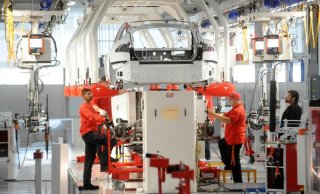 watched Model 3. Perbix, a maker of automated machines used for manufacturing, has been acquired by Tesla after nearly three years of working with the electric carmaker. Tesla has declined to disclose the cost of the acquisition and other details. Tesla will be expanding Perbix’ operations in the Minneapolis area, where the supplier is based. Tesla CEO Elon Musk has recently been making comments about the automation challenges holding up hitting the production timeline that had originally been set for the $35,000 Model 3. In other news, Jon Wagner, Tesla’s director of battery engineering, has left the company and is launching a battery and powertrain startup in California.
watched Model 3. Perbix, a maker of automated machines used for manufacturing, has been acquired by Tesla after nearly three years of working with the electric carmaker. Tesla has declined to disclose the cost of the acquisition and other details. Tesla will be expanding Perbix’ operations in the Minneapolis area, where the supplier is based. Tesla CEO Elon Musk has recently been making comments about the automation challenges holding up hitting the production timeline that had originally been set for the $35,000 Model 3. In other news, Jon Wagner, Tesla’s director of battery engineering, has left the company and is launching a battery and powertrain startup in California.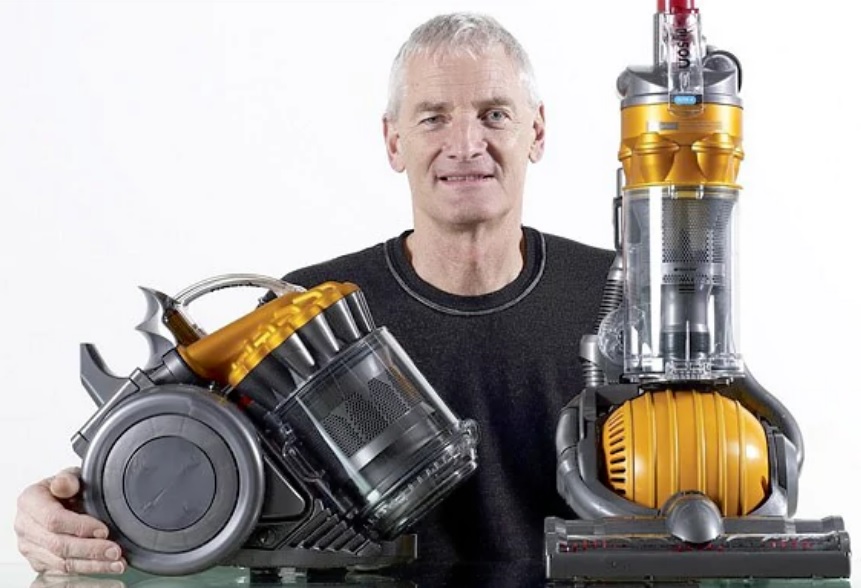 investing about $2.7 billion in solid-state battery technology and designing the EV. It will be put together by a team of more than 400 employees, said founder James Dyson. It won’t be an affordable Tesla Model 3, Chevy Bolt, and Nissan Leaf competitor. Dyson said it will be an expensive car, and those interested will have to “wait and see” what it’s going to look like. Rumors have been floating about the company getting into the EV race for a few years now, which was clarified last year in a government document filing. The company’s sales have grown in recent years as it expanded its presence in Asia. That will be a big part of its EV launch. “We see a very large market for this car in the far east,” Dyson said.
investing about $2.7 billion in solid-state battery technology and designing the EV. It will be put together by a team of more than 400 employees, said founder James Dyson. It won’t be an affordable Tesla Model 3, Chevy Bolt, and Nissan Leaf competitor. Dyson said it will be an expensive car, and those interested will have to “wait and see” what it’s going to look like. Rumors have been floating about the company getting into the EV race for a few years now, which was clarified last year in a government document filing. The company’s sales have grown in recent years as it expanded its presence in Asia. That will be a big part of its EV launch. “We see a very large market for this car in the far east,” Dyson said.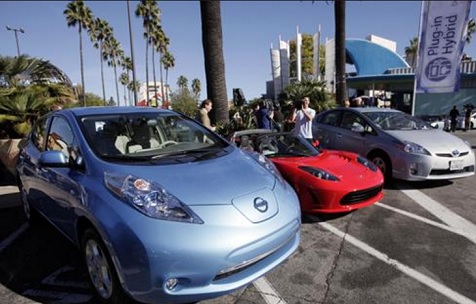 exploring barring the sale of vehicles in California with internal combustion engines. The earliest ban would be a decade away and ties into the state’s campaign to battle climate change. The move would send shockwaves to automakers, which have already been working on meeting the state’s zero emission vehicle mandates in the world’s largest auto market. A more pressing issue for California has been how the Trump administration will be ruling on the fuel economy and emissions standards, and if California’s ZEV guidelines will be included.
exploring barring the sale of vehicles in California with internal combustion engines. The earliest ban would be a decade away and ties into the state’s campaign to battle climate change. The move would send shockwaves to automakers, which have already been working on meeting the state’s zero emission vehicle mandates in the world’s largest auto market. A more pressing issue for California has been how the Trump administration will be ruling on the fuel economy and emissions standards, and if California’s ZEV guidelines will be included.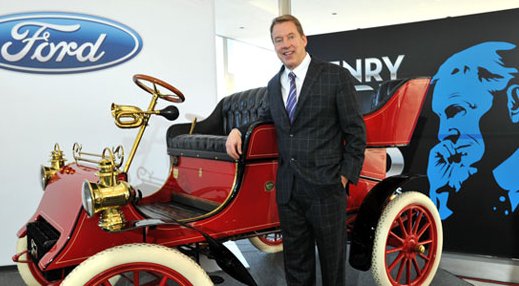 dialogue on the midterm review and beyond. Former EPA official Margo Oge sees Ford, a longtime environmental advocate, well suited to help California, the federal government, and automakers negotiate any flexibility needed through 2025 and to set a road map for 2030. Automakers had been able to have the Trump administration reopen the 2022-2025 midterm review after it had been approved right before the end of the Obama administration. The former EPA official sees it as a win-win for Ford’s stock price and for resolving a difficult issue. “I believe if he does that, we will see the investor community respond with a stock price increase in Ford because investors are looking for companies that are not behaving like the traditional OEMs with competition from Silicon Valley, Tesla and China,” Oge said.
dialogue on the midterm review and beyond. Former EPA official Margo Oge sees Ford, a longtime environmental advocate, well suited to help California, the federal government, and automakers negotiate any flexibility needed through 2025 and to set a road map for 2030. Automakers had been able to have the Trump administration reopen the 2022-2025 midterm review after it had been approved right before the end of the Obama administration. The former EPA official sees it as a win-win for Ford’s stock price and for resolving a difficult issue. “I believe if he does that, we will see the investor community respond with a stock price increase in Ford because investors are looking for companies that are not behaving like the traditional OEMs with competition from Silicon Valley, Tesla and China,” Oge said.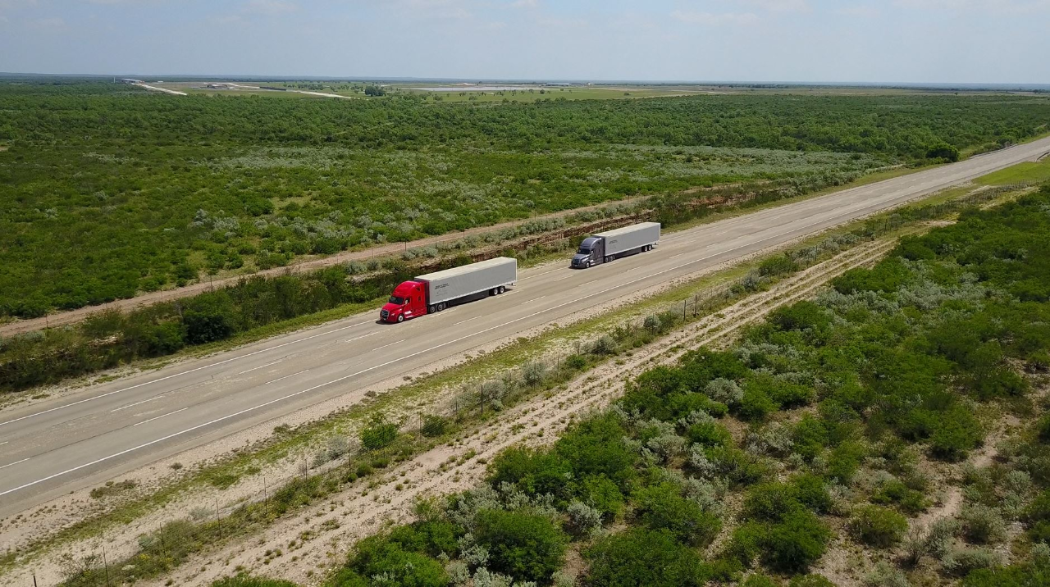 two trucks travel in tandem at distances closer than what is possible under normal driving conditions; as you can see in the photo. Daimler Truck engineers are overseeing a pilot project on Oregon and Nevada highways in cooperation with state officials. The company is also testing braking on a closed track at its High Desert Proving Grounds in Madras, Ore. Daimler Trucks is getting ready for a fleet trial early next year. “Platooning holds the potential to offer significant fuel economy advantages, while assisting drivers,” said Roger Nielsen, president and CEO, DTNA. “To be sure, the platooning technology is not meant to replace drivers – it’s designed to help drivers.”
two trucks travel in tandem at distances closer than what is possible under normal driving conditions; as you can see in the photo. Daimler Truck engineers are overseeing a pilot project on Oregon and Nevada highways in cooperation with state officials. The company is also testing braking on a closed track at its High Desert Proving Grounds in Madras, Ore. Daimler Trucks is getting ready for a fleet trial early next year. “Platooning holds the potential to offer significant fuel economy advantages, while assisting drivers,” said Roger Nielsen, president and CEO, DTNA. “To be sure, the platooning technology is not meant to replace drivers – it’s designed to help drivers.”